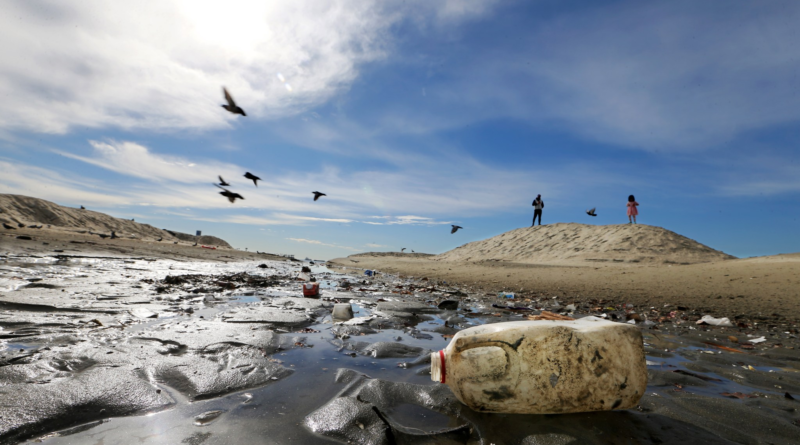It’s time to hold corporations accountable for the plastics crisis—and the bill could exceed $20 billion in the U.S. alone
For decades, scientists have published peer-reviewed studies on hazardous chemicals in plastics and have called out for action, all to no avail. Now medical practitioners on the front line of this plastic crisis are sounding the alarm ahead of the final round of UN negotiations for a Global Plastic Treaty. The urgent message cannot be overlooked: Plastic is a threat to human health.
The lack of transparency around the plastics industry has led academics and campaigners to search for facts—and those facts are startling. Some 16,000 chemicals are used in plastic and yet only 6% are currently subject to international regulation. Of those 16,000 chemicals, many are endocrine disruptors, meaning our hormones and bodily functions are under constant attack when exposed. With a new chemical being produced every 1.4 minutes, our exposure is only set to rise.
The impact of such wholesale disruption cannot be understated. A toxic soup of endocrine disruptors, polyfluoroalkyl substances (PFAS), and phthalates present in plastic cause cancer, infertility, heart disease, and more. One study has estimated that 50,000 people a year die in the U.S. because of the level of phthalates lowering their hormones. Recycling, the fix-all solution purported by industry, can actually magnify exposure to these chemicals.
The impact on the economy is seemingly even less known to those with the power to action change. The associated social costs of the tide of plastic chemicals amount to 1.22% of the U.S. gross domestic product—a $250 billion bill for the healthcare systems of the nation.
Perhaps a corporation or financier may think that this number is not their problem for another as their profits will be protected. This is not the case. Near-term exposure (2022-30) to corporate liabilities from plastic-related pollution, including chemical additives, is likely to exceed $20 billion in the U.S. alone. It is this risk to profit that should ring alarm bells in every finance house on Wall Street.
As the world fully awakens to the plastics crisis, litigation will be filed, legislation will be enacted, and perhaps it is this risk to the bottom line that will move the needle. As a scientist, I’m used to writing peer-reviewed papers thinking it should make a difference, but the reality is that no matter how shocking the science, it only has an impact if action is taken.
We are now starting to see the beginning of what could ensure the next generations are protected. California’s Attorney General, Rob Bonta, could have not been clearer as he stood in NYU Langone at our Plastics and Human Health Symposium and stated that “the public has been manipulated and the consumer lied to.” It’s a warning to those in the industry who choose to ignore the science and endeavor to disrupt UN negotiations for a desperately needed Global Plastics Treaty.
A weakened treaty that prioritizes recycling and non-binding targets risks failing to address the astounding cost to human health. In response, leading global doctors alongside the Plastic Health Council have expressed their deep concern, warning of the risk of failure if the Treaty is not strengthened. Mandatory testing of all chemicals, funding for truly natural alternatives to be scaled, and a (now U.S.-backed) limit on the production of plastic. These provisions are foundational—and mean real change for future generations. Only the creation of accountability and corporate risk can protect our health and ultimately our economy.
In this pivotal moment, the choice is ours. Where once the science on plastic and its component chemicals was suppressed, it is now mainstream. We don’t know everything—but we know enough to recognize the need to act. After working in this field for decades, I see momentum building and recognize the power policymakers and consumers have. Let us not squander this opportunity to reshape our relationship with plastic and protect the health of our planet and its inhabitants. It’s time to act.
More must-read commentary published by Fortune:
The opinions expressed in Fortune.com commentary pieces are solely the views of their authors and do not necessarily reflect the opinions and beliefs of Fortune.




